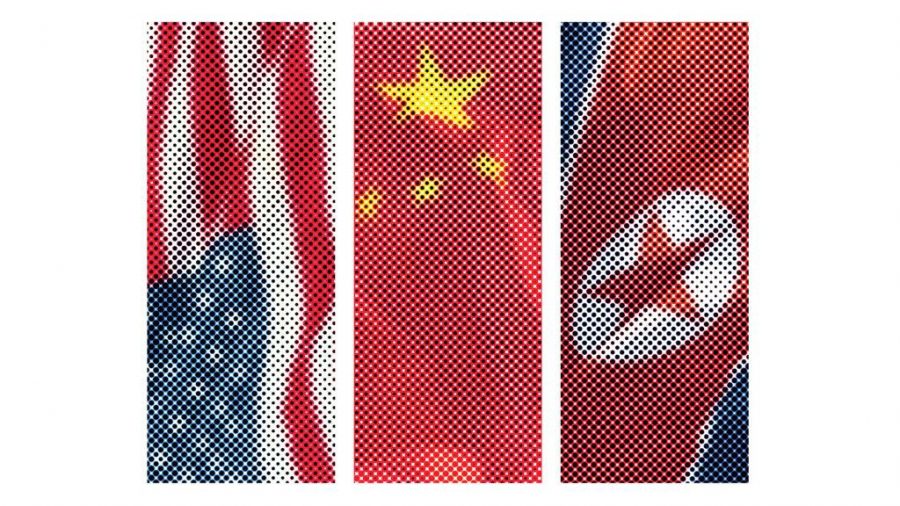A nation lost in time and solitary by nature, North Korea has long been wrapped in mystery. Seemingly angry at all others in the world, the hermit state is prone to periodic military outbursts, which often leave Asian leaders confused and threatened. Yet, North Korean instability is carefully measured to serve as a reminder of why the nation should be feared. Regardless, times are rapidly changing, as the outset of a South Korean missile defense system has already begun. Escalating tensions in the region have placed an emphasis on action on one nation — China, otherwise known as North Korea’s last economic ally.
The past month has been rather difficult for Chinese diplomats, who have been forced to address numerous events. In a brazen show of force, Kim Jong Nam — North Korea’s heir — was killed in an airport with a deadly nerve agent. Additionally, China watched as North Korea launched rounds of ballistic missiles into surrounding waters. These events have stirred dissent from Seoul and Tokyo, which has led to muted fury within Beijing.
In 2009, North Korea accepted China’s offer to instate a “sunshine policy,” which was meant to stimulate bilateral trade. The development of special economic zones, in tandem with a new bridge, were to be set up between Dandong, China and Sinuiju, North Korea. These efforts were intended to promote North Korean business in northeast China, which cost an estimated $300 million for Chinese developers. Unfortunately, while the bridge exists, it remains entirely unused.
Although wasted construction isn’t economically detrimental for a nation that has a GDP in the trillions, the failed attempt to promote trade left China with little leverage over North Korea. Since the project was completed, coal exports to China from North Korea have largely diminished. Furthermore, the North Korea regime has continued to stress its individuality, a key provision of the nation’s foreign policy framework. Therefore, while leaders in Beijing claim to hold economic superiority over North Korea, the truth is that Pyongyang is relatively independent. Indeed, North Korean mineral interests have churned massive amounts of money into the economy, while excess coal has been used to power domestic electricity production.
It’s rather apparent that China no longer holds total control over the Kim Dynasty. Earlier this month, when China declared that it would suspend all North Korean coal imports until the end of the year, leaders in Pyongyang hardly responded. Why? Well, unlike the former dictator of North Korea, Kim Jong-un has never visited China publicly. Instead, he has insisted upon preserving the same self-reliance that vaulted the family to power decades ago. And while Pyongyang might receive additional sanctions from Beijing, this has happened before, and it will take much more to shake the self-relying hermit state.
Each provocation from North Korea in the region has further strengthened the alliance between the United States and South Korea. Recent missile launches, which landed within Japan’s economic maritime zone, were used by the U.S. and Seoul to speed up the deployment of a U.S.-built anti-missile system known as THAAD (Terminal High Altitude Air Defense). China, who believes that THAAD could be used to spy on Chinese airspace, sees the strengthening partnership as a dangerous asset for the U.S. While China’s Foreign Ministry warned of consequences for the U.S. and South Korea, the project has continued unabated. In response to additional North Korean missile tests, the U.S. announced that it would begin sending THAAD components to South Korea immediately.
These events have intensified the diplomatic pressures on China to address North Korean destabilization. Yet, as Bloomberg reported, “China may have legitimate reasons for not wanting to go further and risk destabilizing the Pyongyang regime. The mainland would bear the brunt of any refugee exodus from the North and faces the unsettling prospect of a unified Korea. ” Therefore, while Kim Jong-un’s erratic behavior has solidified his reputation as a fearsome leader, it has isolated the nation even further. Yet, for a leader that has overseen the brutal execution of numerous state leaders, the idea of reducing military aggression is laughable. For the Chinese, who have consistently failed to curtail Kim Jong-un’s behavior, this ultimately means one thing — the growing presence of the U.S. within the region.


